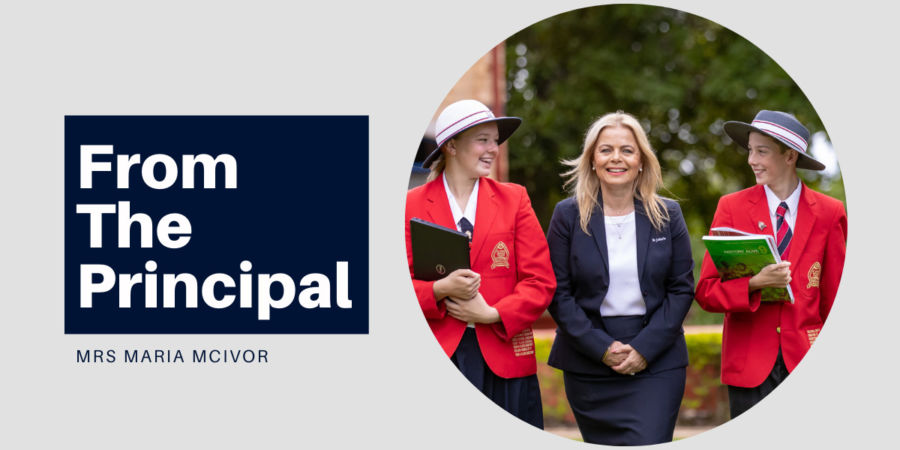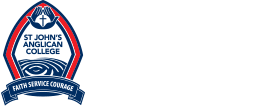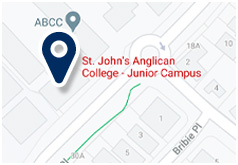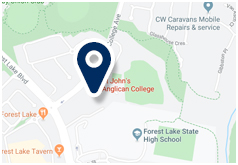From the Principal – March 2024

In an extraordinary affirmation of the relativity of time, we find ourselves at the end of term! It has been a challenging term in so many ways. Yet through it all the students have been (as is their inclination) unbelievably positive and have thus kept alive that sense of optimism and possibility that puts a spring in all our steps.
This positivity seems to emanate from their willingness to engage with school life in all its forms and this engagement, I believe, is occasioned to a large extent by our determination to offer as wide a range of academic, sporting and cultural pursuits as we can. It allows more opportunities for each student to become passionate about a particular aspect of school life, whether that be mathematics, history, sport or music; and to be passionate about something healthy and constructive is a wonderful thing. Indeed it is the pursuits about which we are passionate that help to guide us towards our destiny. This positivity extends to family life too.
Melbourne clinical psychologist, author and specialist speaker about issues relating to young people, Andrew Fuller, has produced an insightful paper on developing resilient families. “Ten Hints for Creating Resilient Families” is short and provoking and can be found here – http://andrewfuller.com.au/wp-content/uploads/2014/08/Ten-Resilience-Hints.pdf.
In summary, it suggests a rather amusing image as a practical definition of resilience. It is, he suggests “the fine art of being able to bungy jump through life”. Clearly, it is the bouncing back that he is valuing rather than the avoidance of life problems. While it sounds like wisdom from my grandmother I guess that on balance it is likely to apply to us all. I enjoyed it and want to share it with the unsung heroes of our community – our selfless parents.
Andrew’s ten hints are as follows:
- Promote belonging: Family, sport, music, drama, church and friends are just a few of the places where we can find a place to belong. Competition within any place can unsettle as the belonging needs to be unconditional.
- Have some ‘mooch’ time: A frenetic life filled with obligations may help in keeping track of where people are but it can crush the ability to dream. “I am bored “is often the result of an inability to fill space and be creative with time and opportunity. Unstructured time is essential in developing a balance in life.
- Rediscover some family rituals: The possibilities are endless. Walking the dog, pizza nights, cleaning rituals and roast nights are some of the suggestions. Low cost should be a criterion. The point is to create a bank of memories that can be drawn upon in later times.
- Spontaneity and curiosity: These are essential in healthy individuals. They replace fear and lack of self-confidence. Both of these qualities are role-modelled by parents. They are not learnt from a book. The simple truth is that parents need to enjoy life to teach it effectively to their children. Success needs to be seen to be worth having.
- Love kids for their differences: The best functioning families allow people to be different and they love each other for their differences. However, this does not mean stereotyping children. If some characteristics are a little unlovable there are problems. Individuality needs to be balanced by the reality of living with others.
- It is clear who is in charge: A system that incorporates extensive consultation can function effectively, ensuring parental authority has the ultimate decision-making power. Losing the friendship of children is a common fear of parents who are unable to take charge. Where parents fail to take their responsibilities seriously children will feel there is no place or role for them.
- Consistency: This is the ideal. Parental agreement is important and this extends to issues of compassion, coercion, and responsibility. Manipulation is death to building personal resilience. If inconsistencies exist allocate areas to specific parental influence.
- Teach self-esteem: Praise helps in building confidence. It needs to be authentic and sincerity is critical. Optimism is a valuable associate of praise. Self-praise can be a valuable adjunct towards developing self-esteem.
- Know how to argue: Successful families know how to argue. They know how to resolve differences. They teach sharing and negotiation skills. This is all done by the real life of problem-solving.
- Parents are reliably predictable: Confidence is built by predictability. Blame is minimised in healthy families as is a reliance on guilt to ensure compliance. Anger does not build resilience. Being responsible for decisions and knowing that matters need to be resolved goes a long way to building resilient individuals.
At the beginning of the next break, we celebrate Easter as a community. As a College, we will celebrate Easter with Chapel Services on Tuesday and Thursday of next week. I encourage all College families to pause during Easter to reflect on the magnificence of the Easter story in all of its complexity. This includes the difficulties and pain that Jesus went through at the crucifixion. This was a period in his life that he confronted with strength and dignity that is intended to encourage us in our times of struggle. Easter also includes the wonder and optimism of the rising that is intended to inspire us all in our life work.
I wish all a very happy and reflective Easter and Term break!
Mrs Maria McIvor
Principal




